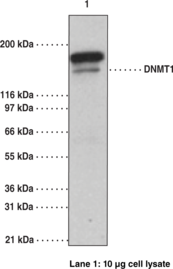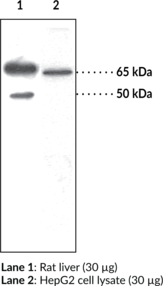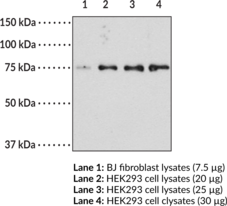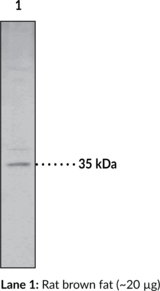Description
Methylation of DNA at cytosine residues plays an important role in regulation of gene expression, genomic imprinting, and is essential for mammalian development. Hypermethylation of CpG islands in tumor suppressor genes or hypomethylation of bulk genomic DNA may be linked with development of cancer. To date, three families of mammalian DNA methyltransferase genes have been identified which include DNMT1, DNMT2, and DNMT3. DNMT1 is constitutively expressed in proliferating cells and inactivation of this gene causes global demethylation of genomic DNA and embryonic lethality. DNMT2 is expressed at low levels in adult tissues and its inactivation does not affect DNA methylation or maintenance of methylation. The DNMT3 family members, DNMT3a and DNMT3b, are strongly expressed in ES cells but their expression is down regulated in differentiating ES cells and is low in adult somatic tissue. DNMT1 co-purifies with the retinoblastoma (Rb) tumour suppressor gene product, E2F1, and HDAC1. DNMT1 also cooperates with Rb to repress transcription from promoters containing E2F-binding sites suggesting a link between DNA methylation, histone deacetylase, and sequence-specific DNA binding activity, as well as a growth-regulatory pathway that is disrupted in nearly all cancer cells.
Synonyms: DNMT1
Immunogen: synthetic peptide corresponding to amino acids 637-650 (EKDDREDKENAFKR) of human DNMT1
Formulation: 100 µg IgG in 200 µl PBS containing 0.05% BSA and 0.05% sodium azide
Isotype: IgG1κ
Applications: WB, IHC (paraffin-embedded sections), ChIP, and IP
Origin: Animal/Mouse
Stability: 365 days
Application|Immunohistochemistry||Application|Immunoprecipitation||Application|Western Blot||Product Type|Antibodies|Monoclonal Antibodies||Research Area|Epigenetics, Transcription, & Translation|Writers|DNA/RNA Methylation




